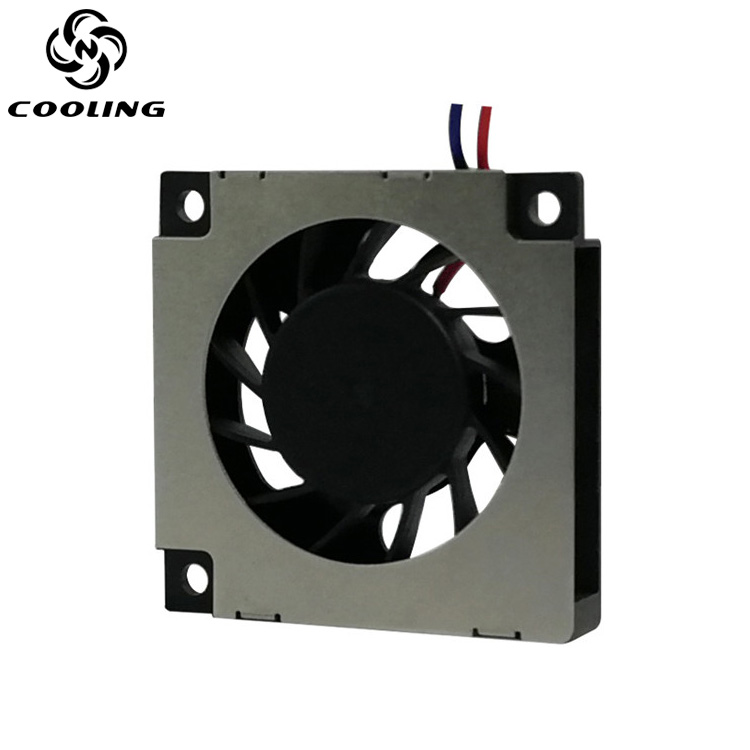Making a cooling fan more silent is desirable to create a more comfortable and less disruptive environment. Here are some reasons why you might want to make a cooling fan more silent and some techniques to achieve it:
Reasons to Make a Cooling Fan More Silent:
- Noise Reduction: Excessive fan noise can be distracting, especially in quiet environments or during activities that require concentration.
- Improved Comfort: Quieter fans contribute to a more peaceful and comfortable atmosphere, promoting relaxation or better sleep.
- Noise Regulations: In some cases, noise restrictions or regulations may be in place, requiring fan noise to be within certain limits.
Techniques to Make a Cooling Fan More Silent:
- Fan Selection: Choose fans specifically designed for quiet operation. Look for fans with lower noise ratings or those marketed as “quiet” or “silent” fans.
- Fan Speed Control: Reduce fan speed to lower noise levels. Adjusting the fan speed can be done using fan control software, hardware controllers, or BIOS settings.
- Anti-Vibration Mounts: Use rubber or silicone dampeners or mounting grommets between the fan and the mounting surface to absorb vibrations and reduce noise transmission.
- Fan Placement: Optimize fan placement to minimize noise. Avoid placing fans near hard surfaces that can reflect and amplify noise. Position fans in a way that promotes smooth airflow and reduces turbulence.
- Cleaning and Maintenance: Regularly clean fans and surrounding areas to remove dust and dirt that can cause imbalances and increase noise. Lubricate fans with appropriate lubricants if necessary.
- Noise Absorption: Use noise-absorbing materials such as foam or acoustic padding in the fan housing or surrounding areas to absorb and dampen noise.
- Fan Shrouds or Ducts: Install fan shrouds or ducts to direct airflow and reduce noise. These components can help streamline airflow and minimize turbulence.
- Enclosures or Soundproofing: If feasible, consider enclosing the cooling system or using soundproofing materials to isolate and reduce fan noise.
- Fan Replacement: If all else fails and the fan remains excessively noisy, consider replacing it with a higher-quality, quieter fan. Look for fans with features like advanced bearing types or noise-reduction technologies.
It’s important to note that while these techniques can help reduce fan noise, there may still be some noise present, especially at higher fan speeds. The level of noise reduction achievable depends on various factors, including the quality of the fan, the environment, and the specific cooling requirements.
让冷却风扇更安静的原因和方法
让冷却风扇更安静是可取的,可以创造更舒适、更少干扰的环境。以下是您可能想要让冷却风扇更安静的原因和一些实现的方法:
让冷却风扇更安静的原因:
- 降噪: 过多的风扇噪音可能会分散注意力,尤其是在安静的环境中或需要集中精力的活动期间。
- 提高舒适度: 更安静的风扇有助于营造更宁静、舒适的氛围,促进放松或改善睡眠。
- 噪音法规: 在某些情况下,可能存在噪音限制或法规,要求风扇噪音在一定范围内。
让冷却风扇更安静的方法:
- 风扇选择: 选择专门为安静运行而设计的风扇。寻找具有较低噪音等级或被标榜为“安静”或“静音”的风扇。
- 风扇速度控制: 降低风扇速度以降低噪音水平。可以使用风扇控制软件、硬件控制器或 BIOS 设置来调整风扇速度。
- 减震安装: 在风扇和安装表面之间使用橡胶或硅胶减震器或安装衬套来吸收振动并减少噪音传递。
- 风扇摆放: 优化风扇摆放位置以最大程度地降低噪音。避免将风扇放置在可能反射和放大噪音的硬表面附近。以促进平滑气流并减少湍流的方式放置风扇。
- 清洁和维护: 定期清洁风扇和周围区域,以去除可能导致不平衡并增加噪音的灰尘和污垢。如有必要,用适当的润滑剂润滑风扇。
- 吸音: 在风扇外壳或周围区域使用吸音材料,例如泡沫或吸音垫,以吸收和抑制噪音。
- 风扇罩或风道: 安装风扇罩或风道以引导气流并减少噪音。这些组件有助于简化气流并最大限度地减少湍流。
- 外壳或隔音: 如果可行,请考虑将冷却系统封闭起来或使用隔音材料来隔离和减少风扇噪音。
- 更换风扇: 如果其他方法都无效且风扇仍然发出过大的噪音,请考虑将其更换为更高质量、更安静的风扇。寻找具有先进轴承类型或降噪技术的风扇。
重要说明: 虽然这些技术可以帮助降低风扇噪音,但仍然可能存在一些噪音,尤其是在较高风扇速度下。可实现的降噪水平取决于各种因素,包括风扇质量、环境和特定冷却要求。

